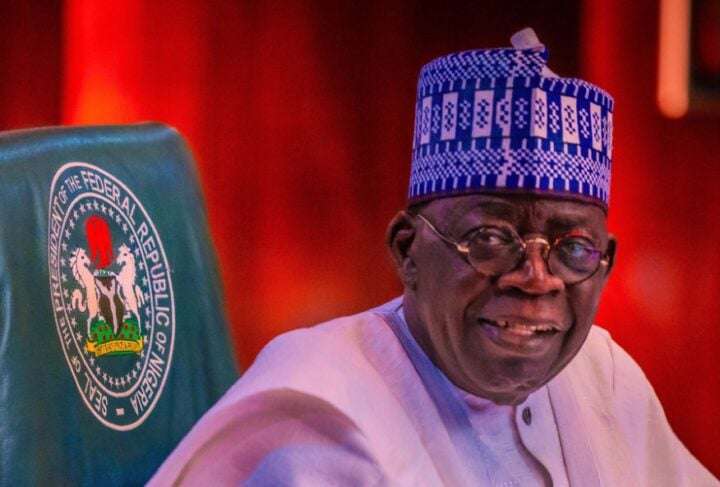Business
CBN’S stagflation dilemma: No solution in sight to Nigeria’s economic woes!

By Uche Chris
The Monetary Policy Committee, MPC, meeting of the Central Bank of Nigeria, CBN, has sufficiently become a routinely uninspiring drudgery brought about by the near hopelessness of our economic situation. It brings to the fore, and epitomizes the stark reality of the dilemma facing the apex bank and the daunting and intractable nature of the economic challenge facing the country.
It must be very frustrating for the policy makers on the economy to apparently, rightly and accurately, diagnose the issues of improving the economy and know what to do to achieve the objectives, and yet would not be able to implement them because of the structural and existential contradictions inherent in every policy option.
In diplomacy, inaction is often regarded as tacit action by default, and such could be promoted where important national interest is not immediately involved. But in social and economic situations, prompt actions are always required, because such problems easily and quickly mutate and assume a life of their own in a vicious cycle. That is the situation we now with insurgency, herdsmen, banditry, and especially the economy.
By retaining all the parameters as always, the MPC admitted it has no solution to the economic challenges buffeting Nigerians, and is incapable and ill-disposed to take the policy risk to change the situation of things in both the short and long term. Obviously, no CBN governor can dare to be truly independent given the tenuous nature of Nigerian politics and particularly this regime’s obsessive appetite for power.
All we have in life is about risk taking and the continual quest for balance through critical choices between pleasure and pain, success and failure, and problems and solutions. We preach it o individuals on personal development, wealth creation and business success but turn the same logic on its head when it comes to the economy, simply because of political risk and the next election; as if inaction will make the problems go away. Problems are created by actions and also solved by taking actions.
As Reggae legend Peter Tosh once crooned, “Everybody wants to go to heaven but none wants to die”, which is both a philosophical and spiritual truism of human existential paradox, as well as economic development contradictions that pose and create difficult choices for social freedom and self actualization.
Here is the context: Most people and nations begin life at the same level; there may be temporary advantages and opportunities, but only those who take the serious steps of creating a clear roadmap for the future by making the hard choices through proper prioritization and personal sacrifice can resolve some of these contradictions to achieve the envisaged future. As it is for individuals so it is for nations.
Over the years we have lived as if these contradictions and hard choices do not exist and could be wished away; well, the truth is that life does not permit such intellectual indolence and spiritual immaturity. Exuberant Pentecostal preachers would say that “without price there is no prize”. And they are right; unfortunately, our policy makers since 1970 appeared oblivious of this elementary lesson in social development and economic freedom.
Nigeria is not in this economic mess and conundrum because of want of what to do to change things, but as a result of the accumulated faulty steps of the past, which have come to a head and leave us with very little or no leeway to maneuver and wriggle out of the tight situation. The sad lesson is that, as you make your bed, so you shall lie on it.
There is this great temptation and scape-goatism to blame the Covid 10 pandemic for the problems; no it is not; nor the current CBN and even the for the problems. However, the truth is that they are not as responsible as those before them; although they made a bad situation worse.
Nigeria has mismanaged its economy over the years due to dependence on oil, bad economic habits and the preoccupation with foreign exchange demand management that we ignored the challenge of supply, which is holding the nation on the jugular, making it herculean to select and apply appropriate policy frameworks that could produce the needed succour.
So we seem to be running around in a cycle waiting for a fortuitous break to allow us a breather. But again such fatalistic hope seems to be dimming and disappearing by the day, oil price politics remains unpredictable. For us, it is proving highly unlikely that oil will provide the way out of this economic logjam.
Most of life’s situations don’t solve themselves. It is usually a trade-off or compromise – sacrificing some smaller objectives or lower priorities for the greater good; and shorter enjoyment for sustainable longer term goals. The common fear is that long terms goals may be uncertain and people live in the present. As Lord Keynes once quipped, “in the long term we are all dead”.
But that is overly pessimistic, lacks social and spiritual consciousness, and driven by consumerism. The truth is it will never happen, because human beings are very adaptable. This is how the world and human life is structured for progress; but the challenge is that most people and nations like Nigeria, want to eat their cake and still have it – a good life without hard work and painful sacrifice. It can only happen in the dream world.
It is dishonesty for the CBN and government to pretend that the present problems of the economy were caused by the Coronavirus pandemic; because it is not true. The issues have been there even before the coming of this government; although the pandemic may have exacerbated and aggravated its pernicious effects.
All the past CBN governors had made the same mistake focusing on the supply management of forex, and pursuing a combined and collective control of the critical economic and monetary policy indicators, such as inflation, interest rate, and currency value stability. So far, it has not worked and may never work.
For an economy in depression characterized by rising inflation currently approaching 15 percent; exchange rate at almost N500 to a dollar, and interest rate at a subprime level , it is a policy vortex that constrains creative policy innovation. For instance, a reduction in interest rates, currently at 11. 5 percent, will increase liquidity and fuel inflation further and also worsen pressure on the exchange rate of the naira, according MPC’s argument, which is expected and normal economics.
But it does not occur to MPC that the CBN is also responsible for the rising inflation rate by its massive interventions in the economy in one form or the other. Such interventions which come as stimulus packages should not be a permanent and preferred policy instrument for tackling the problems. Rather, the CBN should adopt interest rate reduction, which will also produce the same inflationary trend, but with greater benefits due to its wider effect at micro level on investment and employment.
However, it seems the CBN is playing the power game of ensuring that it is the one driving the economy by direct interventions. Interest rate reduction is an indirect policy instrument of determining the direction of the economy; unlike interventions which make the CBN an active player. Interventions are short term, discretionary and distortive, and hardly produce the required outcomes. Problems are not solved by throwing money at it.
Time has come for the CBN to abandon its knee-jack reactions to the economy, and prioritise its options based on the fundamental objective of restructuring the economy on a long term sustainable and self reliant trajectory, rather than the incremental and half hearted measures, which are time wasting, problem prolonging, and solution-shy. A very difficult option but such is usually the demand of greatness: making the impossible and unlikely, possible.
The economy needs investment to create jobs to increase consumption and drive growth. Nigeria should pursue investment and allow inflation and exchange rate to spike in the short term. With investment – local and foreign – Nigeria will not be able to moderate inflation and exchange rate in the long term. In other words, investment is the only way to guarantee future stability of the naira and the country from crazy defence of the naira; only a lower interest rate will do it. Nigerians are already suffering any hope of better future, so why not let them suffer with some definite hope?
But there is the politics of it, which involves a government that wants to win the next election; and the labour unions, which are still mired in 19th century ideological politics. Inflation is anti government and labour wages, and no brainer for any government. So, the MPC is only wasting everybody’s time.









